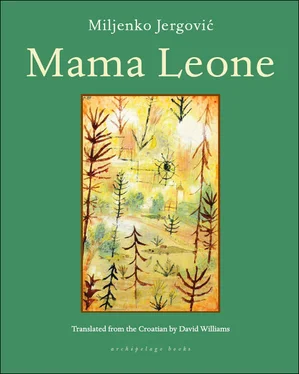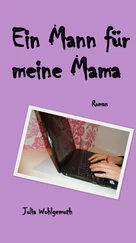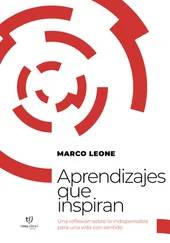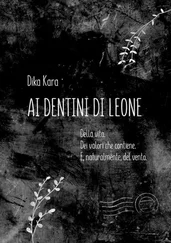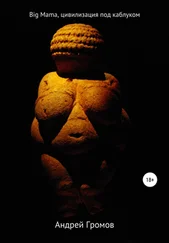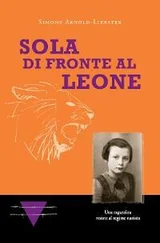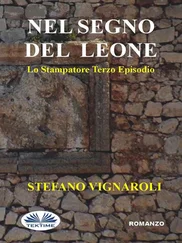It riled Grandma most of all that Mom wouldn’t let her bake cakes for New Year’s or my birthday. Other times were fine, but for New Year’s or my birthday, no way. I’m her son, and it was her job to bake her son a cake on special occasions. Okay, you bake them for him then, but quit dragging me up to see whether the dough has risen , Grandma said once, and that made Mom really wild and she yelled back You’ve been hounding me my whole life , burst into tears, and immediately got a migraine. Grandma never again complained about being called over to see whether the dough had risen. Just let it be , said Auntie Doležal.
The most exciting part was when the cake came out of the oven, because then nobody, not even Grandma, knew whether a catastrophe was in the cards. A catastrophe was when the middle of the cake caved in or shrank, so the cake didn’t look like a cake anymore but like something else, it’s hard to say what, but something awfully funny that you weren’t allowed to laugh at, because Mom and Grandma would be there hovering over whatever that something was. Mom would bury her face in her hands like those little slant-eyed mothers when their husbands were killed, and Grandma would start cussing. She never cussed otherwise, just when a cake flopped. And if the cake flopped a replacement had to be made. Then we’d have two cakes for the special occasion: a normal one to serve to guests and a second that tasted normal but looked so bad nobody was allowed to see it except us. We ate that one on the sly before the guests showed up.
Before the New Year of 1977 Nano came over, got his pen and paper out, and again I told him I didn’t need a sewing needle or a locomotive and that we could get straight down to business on the present list. I told him that my relationship to time and its passing had fundamentally changed and that as such, I needed a wristwatch. He wrote it down, went home, and three days later died.
He was in my dad’s ward, in a deep coma, and at the time it was all everyone talked about. I didn’t actually know what a deep coma was, but it meant this New Year’s wasn’t going to be a special occasion and that there’d be no one to take the blame for unfulfilled promises. Up until this point promises had been disregarded or broken because someone had forgotten them; grown-ups were promise-killers, all you could do was look at them, shake your head, and think: But why? Why one more little graveyard, full of unfulfilled wishes and forgotten words strewn on balmy city streets like summer hail that melts in the blink of an eye, leaving nothing but an image behind, a single, tiny, inconsequential image at the bottom of the gaze of all for whom it has fallen like a promise?
Nano couldn’t keep his promise because he was in a deep coma. Mom sat at his bedside for two nights saying things like Nano, sweetie, it’s just started snowing, it’ll be New Year’s soon, it’s already scrunchy underfoot, and soon we’ll be eating this year’s apples . She said all kinds of things to him, watching for an eyelash to flicker or a quiver in the corners of his mouth, because Dad had told her that you never know with a deep coma, that you can’t be sure whether Nano could hear anything, feel her hand, or sense the slipstream of words through the world and the cosmos, along the nerves that lead to the brain, like unstamped letters dropped in a distant post-office box, letters in which we all tell him that we love him.
Dad stopped by every half hour, listened to what Mom was saying to Nano, putting his hand on her shoulder and gently stroking her hair. He was in his white doctor’s coat, a silver fountain pen peering out from a small pocket. In his doctor’s coat my dad wasn’t the same dad as the one without a doctor’s coat. Regular Dad lied, didn’t keep his promises, and was often weak and downhearted. He looked like someone liable to be hit by a car on a pedestrian crossing or prone to spilling plates of soup in his lap. This dad, Dad the Doctor, he was God, Comfort, and James Bond. For him there was no such thing as an incurable illness, nor a life bearing any resemblance to death, not even a life in a deep coma. Every moment was worthy of celebration, and there wasn’t a single moment when you pulled the shutters down on life and said fine, that was that, now I’m dead and I’m leaving . My dad didn’t let people leave, and he was sure Nano’s eyelashes would give the world a signal, that humanity would shudder the moment a lone hair on any one man moved, having stolen itself away from the world of darkness. There are medical truths that serve the healing process and medical truths that confirm that healing is not possible, gravediggers can worry about the latter because I won’t . That’s what he once yelled at drunk Dr. Jakšić, who when we were on a trip to Mount Trebević said that even in the coffins buried in Bare Cemetery, Dobro — my dad — could find a couple of people to declare alive and try bringing back to life.
On the morning of the third day Nano heaved two deep sighs and stopped breathing. Life ends with a sigh, that’s no surprise at all. When I sigh I say to myself okay, fine, let’s start again from the beginning . Sighs are like sleeping, they separate life into a thousand thousand pieces, and before going to bed you put them together and that’s how memories are made. There’s no sighing or sleeping in memories; in memory life is whole again. When death came Nano sighed, told the deep coma well that’s that , and left without saying goodbye. The deep coma waved to him, but Nano didn’t see it, so it was left there with its hand in the air. Nobody ever says goodbye to deep comas when they leave.
Dad hugged Mom and whispered we lost him . Mom cried a little on his white coat, then Dad called Dr. Smajlović over and said exitus , and Dr. Smajlović looked at his watch, took out his fountain pen, and entered the exact time of death in Nano’s hospital notes. Even though they straight-out forget it, don’t have to tell anyone, and nobody ever inquires about the hours and minutes in question, the exact time of death is very important to doctors. In a filing cabinet somewhere there’s a file with the time of death written down, just in case it becomes important one day as some details in life do. Auntie Doležal is of the view that one day God is going to assemble all souls and assign them grades. The time of death in one’s hospital notes is just waiting for that day, even though we live in communism and none of the doctors believes God exists. But like our own, this belief is a little shaky. So, who knows, maybe Nano will appear before God and maybe God’ll say so often you used to say I didn’t exist, and now you’re not in the least surprised to see me .
Dad and Mom went outside. He took out a packet of cigarettes, and Mom said look how much snow there is already . The snow was as thick as the pillows in the rooms of gentle giants, falling without pause on Mom’s black jacket and Dad’s white doctor’s coat. By the time they’d each finished their cigarette their shoulders were covered in snow, and if a bird had chanced overhead, they would have looked as white as each other, my mom and dad, and the bird would’ve thought them two creatures of winter, in love.
Mom said go, you’ll catch cold , and he said no ; I think in that instant he was ready to remain in the snow forever, just to hear her say that go, you’ll catch cold a few more times. A love sometimes returns like a word you believe to be true, then it flies away and never comes back; but in its wake it leaves a brilliant trail, which gives a winter morning a certain meaning, and so even after a farewell a little hope remains — let’s say the hope of stumbling upon the magic word, even if it comes after a death and the sacrifice of a Nano.
Читать дальше
